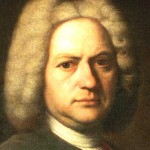Music is more than just an aural experience, as I was reminded recently by something I read.
It’s always fun to find those in our travels to whom God has given a similar message. That’s certainly true for those of us in the Disciple Nations Alliance. Sometimes they become co-laborers and dear friends, like Elizabeth Youmans, Vishal Mangalwadi, Landa Cope, and Rick and Nancy Pearcey. Other times such folks are like ships passing in the night. That’s the case with Dr. Peter Hammond of South Africa’s Frontline Fellowship. I have not met Dr. Hammond, and perhaps never will (although one of our team members, Hein van Wyk, of South Africa, knows of him).
When I read Dr. Hammond’s paper, Sounds that Shape Society, I found that we have been influenced by some of the same authors and have touched on some of the same themes. Given that we are unique individuals from different parts of the world and different contexts, there are things that I can learn from Dr. Hammond, as well as some aspects of his writing which I wrestle with.
However, there is enough here that is worth sharing with the readers of Darrow Miller and Friends. Here are some excerpts to whet your appetite.
Plato declared: “Give me the songs of the nation and it matters not who writes its laws.”
Music is not only a reflection of a culture, but it is a major force in shaping culture. There is a tremendous power in music. Music can have a highly edifying effect on people by celebrating the beauty of God’s creation, the majesty of Almighty God, our Creator and eternal Judge, inspiring and uplifting its listeners. …
Dr. Schmidt concludes: “Western music attained its greatness because its composers, such as Ambrose, Bach, Handel, Mozart, Mendelssohn, Stravinsky and Vaughan Williams, were inspired by Christ’s life, death and resurrection…Their lives had meaning and their music resonated those convictions. That is why Bach, for instance, felt that all music, even secular music, was an expression of Divinity.” While not all of these musicians had a personal relationship with Jesus Christ, they were the products of a culture and worldview that was Biblical. …
A Christian, Guido of Arezzo, in the 11th Century introduced the staff of four lines of which the pitch of notes could be written. His invention enables musicians to notate music. Guido also devised solfege (do, re, mi, fa, sol, and la). These six syllables comprised a hexachord of six successive notes to which two more have now been added: ti and do. Guido’s contribution was “as crucial to the development of music as written language is to literature.” (What If Jesus Had Never Been Born? by Dr. James Kennedy and Jerry Newcombe). …
 One of the most gifted musicians in history, Johann Sebastian Bach (1685 – 1750), set Christian theology and the Gospel to music. Bach’s music reflects his strong convictions. He faithfully read and studied the Bible, along with all the writings of Martin Luther. Bach has been called the “composer’s composer whose analytical mind, belief in God and melodic genius led him to create some of the greatest religious music we have.”
One of the most gifted musicians in history, Johann Sebastian Bach (1685 – 1750), set Christian theology and the Gospel to music. Bach’s music reflects his strong convictions. He faithfully read and studied the Bible, along with all the writings of Martin Luther. Bach has been called the “composer’s composer whose analytical mind, belief in God and melodic genius led him to create some of the greatest religious music we have.”
Go here to read Dr. Hammond’s paper.
May we enjoy witnessing and participating in the things that God is doing around the world today.
– Darrow Miller






2 Comments